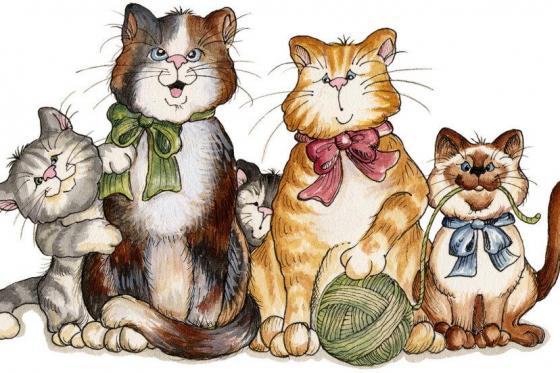Escape Room Roles For a Successful Escape Team

Those who have ever played escape games are definitely familiar with the concept of the escape room roles. This is the concept which categorizes players in escape room by the roles they are performing. It is a very interesting and frankly funny thing to watch and to remember after the game. Simply because it might bring a surprising turn in one's nature and show your teammates/friends from a completely opposite and unseen side.
Why is it happening? Most likely it's because of the intense and untypical for the players’ environment. When the adrenalin kicks in and the adventure rush starts to get into the blood, the way the people think and behave might drastically change. It might call for the best or for worse in us but it definitely will call for our nature. And when it comes to the team playing in escape room, you can easily notice some patterns of behavior among the players that can easily be categorized into 6 specific types (roles). But what are they?
6 types of escape room players
So if you are curious how many escape room roles are out there and who they are, we offer you to read this short guide on escape game player types. And who knows, if you have played before, perhaps, you would recognize yourself in one of those categories. And if you haven't played, can you guess which role you could fulfill? Anyway, we will soon find out. Let's start!
The Seeker
The seekers are the explorers of the group. We put them first in the list mainly because they are the actual working force of the gaming process. If you have more than one of them in the room, consider yourself lucky. Just leave them to do what they feel like doing for about ten minutes and don't intervene. It seems like they have the most developed intuition of all of us. As their ten minutes are gone, just step into the game and solve everything they have already found.
The seekers have no real interest in a further thinking process over the puzzle. The rush to find a hidden object is strong in them. In fact, seekers sometimes might remind you of a child. They are willing to get into every corner, to touch, pull, push everything they can reach. But also, once the fun of discovery is over they immediately lose their interest and even tend to bother the teammates rather than help them.
The Thinker
On the opposite to the seeker, the thinkers are the least active players when it comes to actual physical movements, like search. He or she can actually spend most of the time on the set staying in one position and barely moving around. But what you can't tell about them is that they are the passive or lazy players. No way. Those guys are doing an incredible job, but, in their heads. They are the ones who are eager to figure out all the riddles on the team's ways. They are those who offer the most suggestions and solutions; who can’t wait to come up with a new idea. The rush of guessing it first is the best feeling ever for them!
But to be completely honest, this is also the type which can bring the most hustle to the set. Only because sometimes they tend to overthink and to make the puzzle look much harder than it is.
The Expert
The experts are very similar to the thinkers. But with a few drastic distinctions. First, consider the game a disaster if you have more than one expert. They won't get alone. The role of the expert is to know everything better than others. They are the guru of the group. The thinkers might offer tons of options and possible solutions but the experts don't speak much. They just give you the answer like it came to them from above.
They are the game's lifesavers and the reason you didn't get stuck in the dead end of the clue. But on the negative side, they are kind of a pain in the neck sometimes. They don't play alone and make their move only when everything but the final answer is already done.
The Manager
The manager role is exactly what you can imagine it to be. They are the reason your team can actually put it together in the first place. Those are the players who can perfectly organize the teamwork, find a place for everyone by quickly noticing who is who in the room. Look like they are the captains of the ship.
Being the manager of the team is more than a skill, it's a call of nature. They plan everything ahead even before you are able to define for yourself your role in the game. Now, managers can seem a little bit (or a lot, for that matter) bossy to their teammates. But it only because they really think they know it better, which, to be honest, they usually do.
The Leader
Every puzzle game need escape room roles. But there is one role no team can succeed without. And that is a leader. You might not always have the manager in the team. But there is no way there won't be a leader. They will appear simply by the principle that someone has to.
They are yet different from the managers. Leaders are not necessary to give others orders or map the plan of the game. They even shouldn't really know what to do next. But what they need to have is the spirit that unites the group of players into a real team.
The leaders are there to represent the confidence of the team's success. And to be the one person who remains cool, concentrated and kind to everyone. While all the other players are too busy with their roles in the game the leader will more likely keep an eye on the teammates.
The Watcher
To say the least, all of us who have ever played the game took a role of the watcher once in a while. It's not that you are a bad player or don't know what to do. It's just that sometimes it can be actually really exciting just to be inside the game and to watch how everything is happening. Especially if it's a very fast revolving game and the pace of it just sort of leaves you behind to rethink what has just happened.
Wrapping up
To conclude, in the end of the day, it doesn't really matter which role you are playing in the game, but rather if you are enjoying the process. It always great to challenge yourself and to learn something new about your character. And that’s what this game is there for. We wish you exciting escaping rooms in the future and lots of great memories! Have fun!




